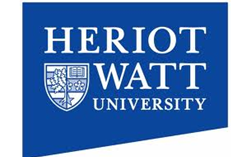Heriot-Watt University’s Medical Device Manufacturing Centre (MDMC) and InnoScot Health are looking to help entrepreneurs in the medical technology field land compliance in the US. This collaborative effort builds upon a successful five-year agreement signed last year, aiming to bring healthcare innovations to life.
According to Statista, the US medtech market is expected to pull in a total of $197 billion (£157.9bn) in revenue this year, compared to $19.4bn (£15.5bn) in the UK. The US’s compound annual growth rate is projected to be higher too, at 4.17% between now and 2028, resulting in a market volume of $241.7bn (£193.7bn) by 2028, compared to just $23.2bn (£18.5bn) in the UK.
The interactive workshop, titled “FDA Regulations on Medical Devices: How to Penetrate the US Market,” is scheduled for the 24th of November. There are also two other workshops planned for the 24th of January and the 21st of February next year.
The sessions will feature presentations from Elaine Gemmell, honorary professor at the School of Engineering and Physical Science at Heriot-Watt University, Professor Marc Desmulliez, deputy principal (research & impact) in the delivery of the University’s Excelling in Research and Enterprise strategic theme, and Edwin Lindsay, the principal consultant at compliance solutions (Lifesciences) Ltd.
The workshops will provide an introduction to navigating medical device regulations in the UK and Europe, followed by a focus on the intricate demands of the United States’ Food and Drug Administration (FDA). Given the similarities and significant differences in regulatory processes between regions, the sessions aim to equip manufacturers with insights essential for market penetration.
“We expect these workshops to be of interest to manufacturers of all experiences and sizes who fundamentally recognise that negotiating compliance with a new medical device in any given country is an absolute must if they are to achieve market penetration there,” said Gemmell.
“Before the pandemic, there was already movement towards increased governance around medical device innovation. Now, however, far-reaching new regulations are having a significant impact on everyone involved with medical devices, from their manufacture to their use.
“A strong understanding of regulatory compliance – both preparing for it and then navigating it – must therefore be intertwined with the development process early on when attempting to harness the true potential of new innovations.”
Source: DIGIT

